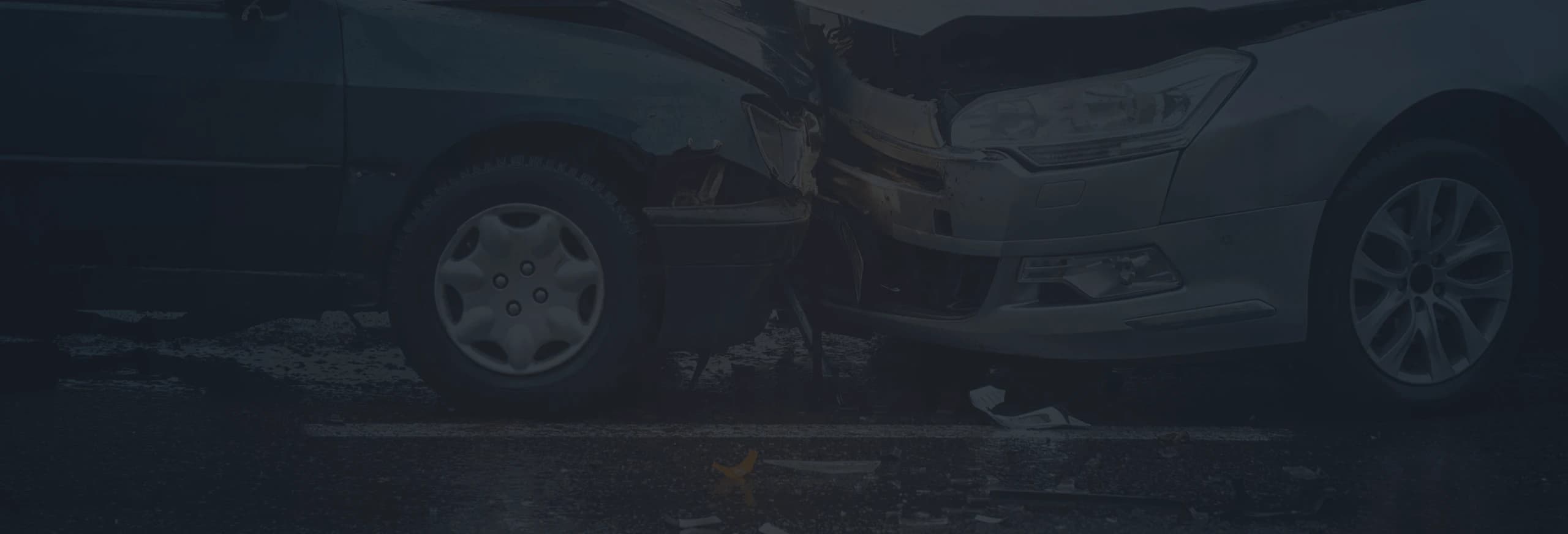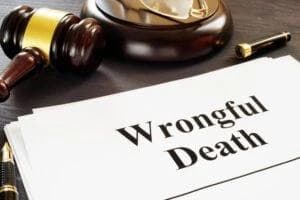
Wrongful Death Lawyer in Scottsdale

Losing someone dear under sudden, preventable circumstances can leave a lasting emotional and financial burden. In Scottsdale, a wrongful death lawsuit offers eligible family members a path to seek accountability and compensation when another party’s negligence, misconduct, or omission led to their loved one’s passing. This legal route can help ease the financial strain of final arrangements, lost income, or counseling costs, all while honoring a loved one’s memory through a pursuit of justice.
Below, discover the core elements of a wrongful death case, common scenarios in which these claims arise, and how an experienced attorney can stand by your side during a challenging time. While this information can guide you toward initial clarity, each claim involves unique circumstances that may require tailored advice. If you are uncertain about your rights or next steps, seeking personalized support can ensure you make informed decisions that align with your family’s needs.
How Wrongful Death Arises in Scottsdale
Wrongful death pertains to fatalities linked to another party’s careless actions or failures. While every loss is painful, certain situations prompt legal recourse when evidence suggests a loved one’s passing should have been avoidable. Common instances include:
- Vehicle Accidents
- Serious collisions involving cars, motorcycles, trucks, or rideshare vehicles
- Impaired, distracted, or speeding drivers escalating the likelihood of severe harm
- Medical or Nursing Home Negligence
- Oversights in basic care, medication errors, or missed diagnoses
- Inadequate staffing or irresponsible treatment in healthcare settings
- Workplace Incidents
- Unsafe job conditions or overlooked safety measures leading to fatal injuries
- Machinery malfunctions or exposure to hazardous materials
- Defective Products
- Items with dangerous design flaws, manufacturing errors, or inadequate warnings
- Examples include faulty vehicle parts, toxic substances, or malfunctioning consumer devices
- Premises Liability
- Fatal injuries on a property where owners neglected known hazards
- Hazards like unmarked obstacles, unsecured pools, or inadequate security measures
According to the Centers for Disease Control and Prevention (CDC), unintentional injury fatalities remain a leading cause of death. Yet many of these losses trace back to preventable errors or negligence. Establishing that someone had a duty of care, breached it, and directly caused a loved one’s demise is key to legal recovery in wrongful death actions.
For a free legal consultation with a Personal Injury lawyer serving Scottsdale, call (844) 343-9609
Who Can Bring a Wrongful Death Claim
In Arizona, not everyone affected by a person’s passing qualifies to file a wrongful death lawsuit. Generally, immediate family members such as a spouse, child, or parent can pursue this claim. Representation of the deceased individual’s estate might also be possible under specific conditions.
Navigating these eligibility rules can be sensitive during an already difficult period. Family structures vary, and legal definitions may not always mirror personal relationships. Collaborating with a compassionate legal professional familiar with wrongful death cases in Scottsdale helps confirm who has the standing to bring a claim and what recourse might exist for recovering damages.
Personal Injury Lawyer Near Me (844) 343-9609
Potential Damages in a Wrongful Death Case
Financial challenges often follow the unexpected death of a loved one. Sudden medical bills or funeral costs, combined with the loss of the deceased’s financial support, can spark significant hardship. A successful wrongful death claim typically addresses various damages:
- Final Expenses
- Covering funeral, burial, or cremation costs
- May include final medical bills incurred prior to passing
- Lost Income and Benefits
- Reflecting the wages or salary the deceased would have provided to the household
- Health coverage or retirement contributions that beneficiaries lose due to the loved one’s absence
- Loss of Companionship
- Acknowledges the emotional toll of losing a spouse, parent, or child
- Considers guidance, care, and companionship the victim would have offered
- Household Contributions
- Childcare, upkeep, or other daily tasks the deceased managed
- The need to pay for services once provided by the loved one
- Pain and Suffering
- Recognizing the mental anguish survivors experience due to abrupt separation
- While no amount can truly mend emotional wounds, this category underscores the intangible effects
Arriving at an equitable figure requires careful documentation, such as evidence of the deceased’s earnings, proof of medical costs, and statements detailing their role within the family. An attorney works alongside financial specialists or other experts to reflect these elements accurately.
Click to contact our personal injury lawyers today
Establishing Negligence in Scottsdale Wrongful Death Claims
Wrongful death suits revolve around showing that someone’s negligence, reckless behavior, or breach of duty caused a fatal outcome. Proving this involves four central elements:
- Duty of Care
- The defendant owed the deceased a legal or moral obligation to act (or refrain from acting) in a reasonably safe manner
- Examples include adhering to traffic rules or maintaining safe premises
- Breach of Duty
- Demonstrating the defendant failed to fulfill that responsibility
- Oversight could be driving while intoxicated, ignoring equipment repairs, or misdiagnosing critical symptoms
- Causation
- Linking the breach directly to the death, rather than external causes
- Requires showing the defendant’s actions (or inactions) triggered the fatal harm
- Damages
- Surviving family members suffer tangible losses (financial, emotional, etc.)
- These must be the direct result of the deceased’s preventable passing
Gathering strong evidence, such as accident reports, medical records, or expert opinions, can strengthen these claims. According to the National Highway Traffic Safety Administration (NHTSA), collisions remain a major source of preventable fatalities, illustrating how a single moment of neglect can alter families’ lives.
Complete a Free Case Evaluation form now
How a Wrongful Death Lawyer Can Help
Grief, shock, and financial worries often combine to make post-loss decisions complex. An attorney focusing on wrongful death cases can offer pragmatic support and reduce burdens:
- Case Analysis
- Reviewing the incident to confirm if another party’s negligence caused the loss
- Explaining legal recourse and potential outcomes without guaranteeing results
- Evidence Collection
- Gathering police investigations, witness testimonies, or medical data
- Consulting experts able to reconstruct accidents or evaluate whether care was negligent
- Insurance Negotiations
- Navigating communications with insurance carriers if auto collisions or property hazards contributed
- Presenting loss-of-income calculations and intangible harms to achieve a suitable settlement
- Litigation When Necessary
- Preparing legal documents, depositions, and court appearances if settlement talks fail
- Organizing arguments to demonstrate the defendant’s breach of duty and the damages inflicted
- Compassionate Guidance
- Understanding survivors’ emotional struggles, offering updates, and clarifying each stage of the legal process
- Helping families focus on healing while the legal complexities are managed
By enlisting professional counsel, families can more confidently seek a resolution that acknowledges both current and future needs tied to the unexpected tragedy.
Steps Toward a Wrongful Death Claim
If you suspect a loved one’s passing qualifies as wrongful death, specific actions may safeguard your potential claim:
- Document Everything
- Retain any accident reports, medical diagnoses, or property inspections
- Acquire statements from people who witnessed the events leading to the death
- Gather Financial Records
- Copies of pay stubs, benefits statements, or business accounts reflecting the lost contribution
- Bills for treatments, funeral costs, or other final arrangements
- Avoid Quick Settlements
- Insurers might approach survivors with an initial offer that fails to account for the full extent of losses
- Consulting a lawyer before signing anything can prevent undervalued settlements
- Seek Legal Advice Early
- Timelines for filing can be strict, and missing deadlines forfeits the opportunity for recourse
- An attorney can assess your eligibility and direct any urgent investigations
- Focus on Well-Being
- Emotional support from counselors, family, or community networks can help survivors cope with grief and stress
- Legal matters, while vital, should not overshadow mental and emotional healing
While no legal measure can fully mend the heartbreak, building a structured claim and avoiding rushed decisions can lessen the strain on grieving families.
Commonly Asked Questions
Who can file a wrongful death lawsuit in Scottsdale?
In Arizona, typically the surviving spouse, child, parent, or personal representative of the deceased’s estate holds the right to file. Clarifying eligibility ensures the correct individual or group initiates the claim. A lawyer can verify who qualifies and guide them on next steps.
What if my loved one shared fault for the accident?
Arizona’s comparative fault principles do not necessarily disqualify a claim if the deceased also contributed to the incident. Damages might be adjusted based on their percentage of responsibility. Professional evaluation is crucial for determining how partial fault could affect the claim’s scope.
Will a wrongful death case always go to trial?
Not necessarily. Many claims settle through negotiations with insurers or the responsible party before reaching the courtroom. Settlement offers can save time and reduce legal costs, yet going to trial remains an option if fair agreements remain out of reach.
Losing a family member unexpectedly can seem overwhelming, especially when preventable circumstances caused the tragedy. Filing a wrongful death claim in Scottsdale might offer financial support for funeral costs, lost income, and related burdens, while also holding negligent parties accountable. If you suspect wrongdoing led to your loved one’s death, consider seeking legal guidance. Knowledgeable counsel can help illuminate your options, advocate for just compensation, and provide you the space to grieve and heal while legal intricacies unfold.
For a free consultation, call (844) 343-9609
Get an agent on the line in seconds
Responsive
Legal Assistance
Our personal injury attorneys advocate for the funds necessary to cover bills, secure medical treatment, recoup lost wages, and provide compensation for your pain and suffering.
Are you facing unfair treatment from the insurance company?
Do you know the value of your case?
Is the insurance company asserting that the accident is your responsibility?

We'll get back to you ASAP.
Get Your Free Consultation
You Pay Nothing Unless We Recover Compensation For You
